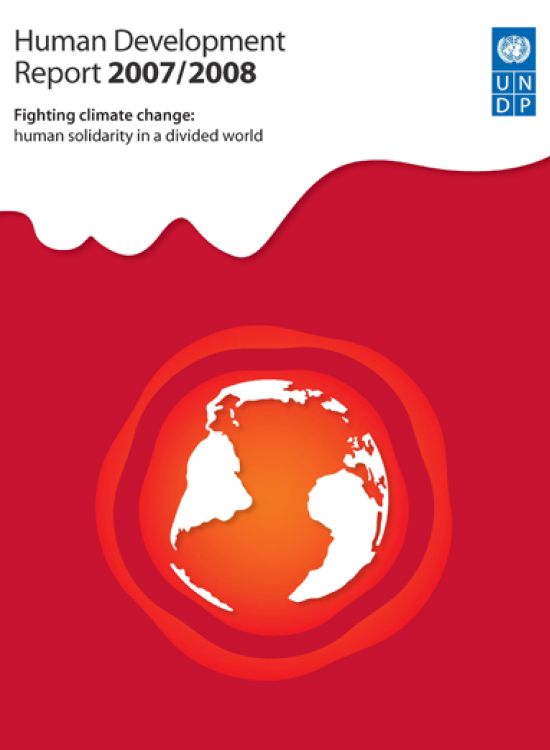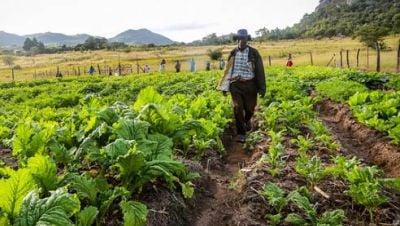Human Development Report 2007/8
Fighting climate change: Human solidarity in a divided world

United Nations Development Programme (UNDP). 2008. Human Development Report 2007/8: Fighting climate change: Human solidarity in a divided world. New York.
Human Development Report 2007/8
Fighting climate change: Human solidarity in a divided world
Climate change is the defining human development challenge of the 21st Century. Failure to respond to that challenge will stall and then reverse international efforts to reduce poverty. The poorest countries and most vulnerable citizens will suffer the earliest and most damaging setbacks, even though they have contributed least to the problem. Looking to the future, no country—however wealthy or powerful—will be immune to the impact of global warming.
The Human Development Report 2007/8 shows that climate change is not just a future scenario. Increased exposure to droughts, floods and storms is already destroying opportunity and reinforcing inequality. Meanwhile, there is now overwhelming scientific evidence that the world is moving towards the point at which irreversible ecological catastrophe becomes unavoidable. Business-as-usual climate change points in a clear direction: unprecedented reversal in human development in our lifetime, and acute risks for our children and their grandchildren.
There is a window of opportunity for avoiding the most damaging climate change impacts, but that window is closing: the world has less than a decade to change course. Actions taken—or not taken—in the years ahead will have a profound bearing on the future course of human development. The world lacks neither the financial resources nor the technological capabilities to act. What is missing is a sense of urgency, human solidarity and collective interest.
As the Human Development Report 2007/8 argues, climate change poses challenges at many levels. In a divided but ecologically interdependent world, it challenges all people to reflect upon how we manage the environment of the one thing that we share in common: planet Earth. It challenges us to reflect on social justice and human rights across countries and generations. It challenges political leaders and people in rich nations to acknowledge their historic responsibility for the problem, and to initiate deep and early cuts in greenhouse gas emissions. Above all, it challenges the entire human community to undertake prompt and strong collective action based on shared values and a shared vision.

